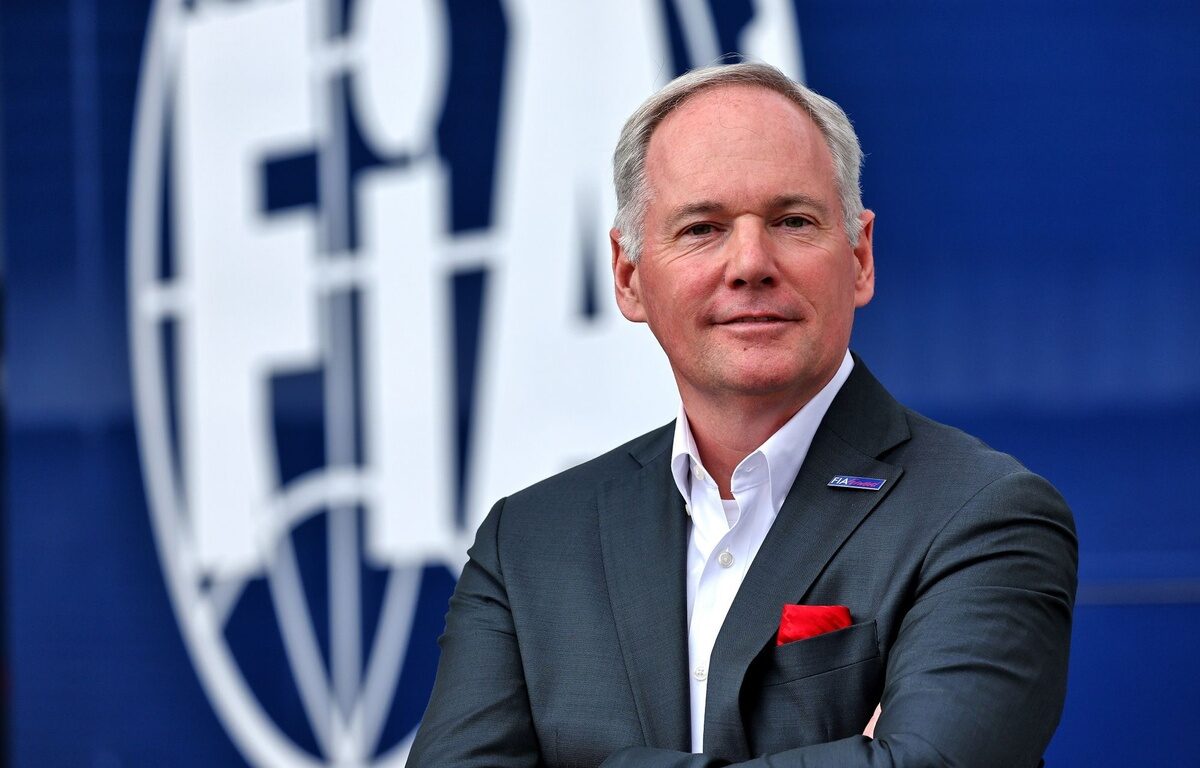
Earlier this month Tim Mayer, sacked as a steward by FIA president Mohammed Ben Sulayem last year, came out as a challenger to him in the forthcoming election. Mayer insisted that this was not a matter of “revenge”, but of providing a real alternative to a president who, he claimed, had not delivered on key manifesto promises he made during the previous election campaign in 2021.
Now Mayer has published his own ‘impact manifesto’ which declares “our mission is to provide the Member Clubs with a compelling alternative to the current FIA leadership”, focusing on “executing the goals of the FIA in an ethical and effective manner”. The messaging is therefore the same but Mayer has added further specifics and, perhaps more significantly, a repeated emphasis on the means of delivery – including measurable ‘milestones’.
Read Also:
Who is FIA presidential candidate Tim Mayer?
When he criticised the current regime during his campaign launch earlier this month, Mayer talked about “the illusion of progress and the illusion of leadership”. It’s therefore not surprising that the language deployed in his ‘impact manifesto’ is emotive and powerful.
But it is also interesting to note that elements of the manifesto relating to mobility and sport are yet to be published.
Mayer’s presentation doubles down on his assertion that, under the incumbent president, the FIA’s management processes have grown less rather than more transparent. The opening slide initially reads ‘Governance manifesto’ before the word ‘governance’ is theatrically struck through and replaced by the word ‘impact’.
Further slides, in a somewhat disconcerting jumble of typefaces and initial capitals, lay emphasis on the theme: “FIA Governance Is continually reported POOR AND DECLINING in Global Standings”. The goal, it says, is to put the FIA in the “Top 20% Of Governing Bodies by Globally Recognized Measures by 2028”.
The “Transformation from a Control culture To a Service culture” is detailed via several key milestones, of which “Day 1” is “Roll Back Presidential Excess”. The specifics here include a reduction in the president’s executive powers over bodies such as executive and audit committees, including the ability to “fire at will” elected members.
“In no institution in the world should those elected to be the watchdogs be able to be fired by the very executive they are charged with advising and supervising,” it says.
Further milestones include the familiar “100 days”, by which Mayer promises to have reset the leadership structure so the president has a clear role on the organisation but is no longer the executive. By this point he also undertakes to have established a “Grant Support Department” for member clubs as a mechanism to drive growth, established an independent financial oversight committee, and set up an independent “Truth and Reconciliation mechanism” so “past internal abuse, coercion or ethical breaches” can be investigated.
This latter element is said to be “not a mechanism of retribution, but of healing, with external facilitation”.
Tim Mayer

The first-year milestones centre around financial strategy – the streamlining of expenses, dedicating a percentage of revenue to member clubs for investment purposes, and a diversification programme to “Reduce over-dependence on specific Championships”. This, of course, is an oblique reference to Formula 1 – but it is a problematic area since the FIA must observe a separation between church and state, as it were.
It’s for this reason that the present regime’s announcement that it was taking control of the commercial rights to the World Rallycross Championship proved controversial. Such a move invites scrutiny from competitions regulators.
The year 2-4 milestones are broader in scope, taking in commitments to expand the growth of member clubs and roll back some of the statutes implemented under Ben Sulayem and Jean Todt, making it more difficult for the sitting president to be challenged at election time. Here the language is also punchy: “Eliminate Statutes Designed To Allow Incumbent To Manipulate”.
A key element of this is to introduce a requirement that “any statute change must be published for 120 days before a vote” so member clubs are “given time to understand and debate statute changes”. In June, the FIA’s general assembly voted through controversial revision to the statutes regarding the electoral process, despite Austria’s national motoring club criticising these changes and asking other members to postpone the vote so they could be debated more thoroughly.
Mayer’s impact presentation closes with a repeat of his invitation to members to provide feedback on the proposals – what his campaign calls “open-source strategy development”.
While the overall theme of Mayer’s campaign so far has been to differentiate his vision of how the FIA should be run from how he says it is presently organised, the elements currently left blank are perhaps more significant. For the campaign to progress he needs to present his “list” of vice-presidents drawn from a global pool of motoring clubs.
It’s understood that such a team has been assembled but the identities kept confidential so far, in order to avoid counter-moves such as the “support letter” for the incumbent from several motoring clubs published ahead of the Spanish Grand Prix. When David Ward stood down as a challenger to Todt in 2013, it was because Todt had already secured pledges of support from 11 of the 12 North American motoring clubs.
For the member clubs who will be choosing their allegiance over the coming months, the mobility and sport elements of Mayer’s manifesto – also yet to be seen – will likely be of greater interest. High-principled matters of ethics and governance are all very well, but tend to be overtaken by matters of pragmatism: ‘What can you do for me?’
To read more Motorsport.com articles visit our website.

